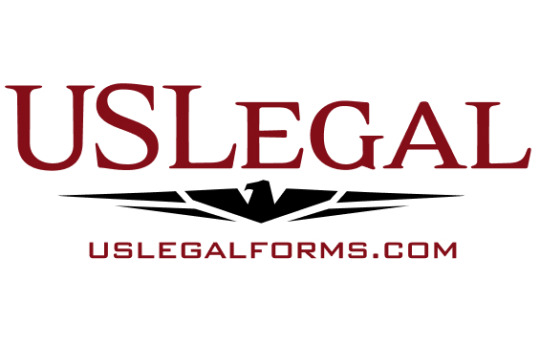#smallclaims
Text
What to do if you get sued in small claims?
If you find yourself being sued in small claims court, it's essential to navigate the process carefully and be aware of your rights and responsibilities. Here's a general guide how to handle being sued in small claims:
1. Understand the Claim: Take the time to carefully read the claim against you. It should outline the details of the dispute, including the amount being claimed.
2. Respond Promptly: Small claims court operates on strict timelines. You typically have a limited period to respond to the claim after being served with the court documents.
3. Gather Information: Collect any relevant documents, contracts, receipts, or evidence that can support your case. This may include communication records, photos, or any other documentation related to the dispute.
4. Attend the Hearing: Small claims court hearings are relatively informal, but attending is crucial. If you fail to appear, the court may rule in favor of the other party by default.
5. Mediation (if applicable): Some small claims courts may offer mediation services before the scheduled hearing. It's voluntary, but participating in good faith can lead to a mutually agreeable resolution.
6. Attorney Consultation(optional): While small claims court is designed for individuals to represent themselves, you have the option to consult with an attorney if you feel the need for legal advice.
7. Be Professional: Maintain a professional behaviour throughout the process. Avoid personal attacks and focus on presenting facts and evidence that support your position.
8. Judgment and Appeal: After the hearing, the judge will issue a judgment. If the judgment is in your favor, it may require the other party to pay a specific amount. If the judgment is against you, you may need to comply with any orders issued by the court. In some cases, there may be a possibility to appeal the decision.
9. Comply with the Judgment: If the court orders you to pay a specific amount or take certain actions, comply with the judgment promptly. Failure to do so may result in further legal consequences.
Remember that small claims court is designed to be accessible and less formal than other court proceedings. Familiarize yourself with the rules and procedures of the specific small claims court in your jurisdiction, and consider seeking legal advice if needed.
#smallclaimsfiling#smallclaims#small claims court#smallclaimsusa#demand letter#small claims files#small claims cases#being sued in small claims
0 notes
Text
6 Things To Know About Small Claims Court Procedures
Small Claims Court Procedures
Small Claims Court Procedures
What is Small Claims Court?The Purpose of Small Claims Court
Common Types of Cases Handled in Small Claims Court
Who Can File a Claim?Individuals
Businesses
Landlords
Tenants
Government and Public Entities
Verifying Eligibility
How to File a Small Claims Case1. Determine the Correct Jurisdiction
2. Complete the Necessary Forms
3. Pay the Filing Fee
4. Serve the Defendant
5. Prepare for Court
What to Expect at the Hearing1. Check-in
2. Presenting Your Case
3. The Defendant's Opportunity to Present Their Case
4. The Judge's Decision
5. Post-Hearing Considerations
Enforcing the Judgment
Key Considerations and Tips
Conclusion
Small claims court is a vital component of the legal system, offering individuals and small businesses a straightforward and cost-effective way to resolve disputes. This guide provides a detailed overview of small claims court procedures, ensuring you are well-prepared for your day in court.

What is Small Claims Court?
Small claims court is a specialized branch of the judicial system designed to provide a streamlined, accessible, and cost-effective means of resolving minor legal disputes. Unlike traditional courts, small claims court is characterized by its simplified procedures, which make it easier for individuals to pursue legal action without needing to hire an attorney. This makes it an ideal venue for everyday people and small businesses to resolve their legal issues quickly and efficiently.
The Purpose of Small Claims Court
The primary purpose of small claims court is to offer a venue where minor disputes can be resolved in a fair, straightforward manner. The court is intended to be user-friendly, ensuring that legal processes do not become overly complicated or intimidating for non-lawyers. This is achieved through several key features:
- Simplified Rules of Procedure: Small claims courts typically operate under more relaxed procedural rules than higher courts. This means that the formalities associated with legal filings, evidence presentation, and courtroom conduct are minimized, allowing laypeople to navigate the system more easily.
- Limited Monetary Jurisdiction: Small claims courts handle cases where the financial stakes are relatively low. The exact monetary limit varies depending on the jurisdiction but often ranges from a few thousand to tens of thousands of dollars. This cap helps ensure that the court's resources are devoted to disputes that are not suitable for more complex litigation in higher courts.
- Expedited Process: Cases in small claims court are generally resolved more quickly than in other courts. Hearings are often scheduled within weeks or months of filing, and decisions are usually rendered promptly. This allows parties to obtain resolutions without the prolonged delays common in more formal legal proceedings.
- Accessibility: Small claims courts are designed to be accessible to everyone, regardless of their legal knowledge or financial resources. Filing fees are relatively low, and many courts provide resources, such as guides or workshops, to help litigants understand the process. Additionally, the informal atmosphere of small claims court can make the experience less daunting.
Common Types of Cases Handled in Small Claims Court
Small claims court is suitable for a variety of disputes, most of which involve relatively simple legal issues. Some of the most common types of cases include:
- Unpaid Debts: If someone owes you money—whether it’s from a loan, an unpaid invoice, or any other form of debt—and refuses to pay, small claims court can help you recover the funds.
- Breach of Contract: When one party fails to honor the terms of a contract, the other party can seek compensation in small claims court. This could involve issues like incomplete services, undelivered goods, or broken agreements.
- Property Damage: If someone damages your property—whether intentionally or through negligence—you can file a claim to recover the cost of repairs or replacement. Common examples include car accidents, damage caused by tenants, or harm done to personal belongings.
- Disputes Between Landlords and Tenants: Small claims court often handles disputes related to rental agreements, such as unpaid rent, security deposit disputes, or damage to rental property.
- Consumer Complaints: If you’ve purchased a product or service that turned out to be defective or substandard, and the seller refuses to provide a refund or compensation, you can take the matter to small claims court.
- Neighbor Disputes: Conflicts between neighbors, such as boundary disputes, noise complaints, or damage to shared property, can also be resolved in small claims court.
Who Can File a Claim?
One of the key features of small claims court is its openness to a wide range of litigants. Almost anyone who has a legal dispute that falls within the court's jurisdiction can file a claim. This inclusivity is one of the reasons small claims court is so widely used.
Individuals
Private individuals are among the most common users of small claims court. Whether you’re a consumer seeking compensation for a faulty product, a landlord trying to recover unpaid rent, or simply someone owed money by a friend or acquaintance, small claims court provides a venue where you can assert your rights without needing to navigate the complexities of higher courts.
Businesses
Small businesses often turn to small claims court to resolve disputes that don’t justify the expense and time associated with formal litigation. For example, a small business might file a claim to recover unpaid invoices, address breach of contract issues with suppliers or customers, or resolve property damage disputes. Because the monetary stakes in small claims court are typically lower, it’s an effective way for businesses to handle minor disputes without disrupting their operations.
Landlords
Landlords frequently use small claims court to address issues related to rental properties. Common claims include recovering unpaid rent, seeking compensation for damages caused by tenants, or disputing the return of security deposits. The streamlined process of small claims court allows landlords to resolve these issues efficiently, without the need for expensive legal representation.
Tenants
Tenants, too, have access to small claims court when disputes arise with landlords. For example, if a landlord refuses to return a security deposit without just cause or fails to make necessary repairs that lead to property damage, a tenant can file a claim. This ensures that tenants have a forum in which they can seek justice and protect their rights.
Government and Public Entities
In some jurisdictions, government entities or public bodies may also utilize small claims court for minor disputes, often related to contracts, property, or other civic matters. However, the rules governing such claims can vary significantly by jurisdiction.
Verifying Eligibility
Before filing a claim, it’s crucial to ensure that your case meets the criteria for small claims court in your jurisdiction. Key factors to consider include:
- Monetary Limit: Make sure that the amount of money you’re seeking falls within the court’s monetary jurisdiction. If your claim exceeds this limit, you may need to waive the excess amount or consider filing in a higher court.
- Type of Claim: Certain types of cases, such as family law matters, criminal cases, or complex business disputes, are generally not suitable for small claims court. Check with your local court to ensure your case type is eligible.
- Jurisdiction: Ensure that the court where you’re filing has the authority to hear your case. This typically means filing in the court located in the area where the defendant lives or where the dispute arose.
By verifying these factors before filing, you can ensure that your case is properly suited for small claims court, increasing the likelihood of a smooth and successful legal process.
How to File a Small Claims Case
Filing a case in small claims court is a relatively straightforward process, but it requires careful attention to detail to ensure your case is handled properly. Following these steps will help you navigate the process successfully.
1. Determine the Correct Jurisdiction
Before filing your claim, you must determine the correct jurisdiction. Jurisdiction refers to the authority of a particular court to hear and decide a case. In small claims court, this usually means filing your case in the court located in the area where the defendant lives, works, or where the dispute occurred.
- Personal Jurisdiction: The court must have personal jurisdiction over the defendant, meaning the court has the legal power to make a decision affecting the defendant’s rights. This typically applies to the geographic area where the defendant resides or conducts business.
- Subject Matter Jurisdiction: This refers to the court’s authority to hear the type of case you are filing. Small claims courts generally have subject matter jurisdiction over cases involving monetary disputes within a specified limit, such as unpaid debts, property damage, or breach of contract.
- Venue: The venue is the specific location where the case should be filed within the court system. It’s important to file your case in the proper venue to avoid having your case dismissed or transferred to another court.
Filing in the wrong jurisdiction can lead to delays or even dismissal of your case, so it’s important to get this step right.
2. Complete the Necessary Forms
Once you’ve determined the correct jurisdiction, the next step is to complete the necessary paperwork to file your claim.
- Complaint Form: The complaint form is the primary document that outlines your claim. It includes details about the parties involved, a description of the dispute, and the amount of money you are seeking. Be specific and concise when describing the facts of your case, as this will help the court understand the nature of your claim.
- Summons: A summons is a legal document that notifies the defendant that they are being sued and provides them with the date and time of the court hearing. This document must be served on the defendant to ensure they are properly informed of the case against them.
- Other Required Forms: Depending on your jurisdiction, you may need to fill out additional forms, such as a verification of your claim, an affidavit of service, or a fee waiver application if you cannot afford the filing fee.
These forms are usually available on the court’s website or at the courthouse. Some courts also offer self-help centers or online guides to assist you in completing the paperwork.
3. Pay the Filing Fee
Filing a case in small claims court typically requires payment of a filing fee. The fee is generally modest, but it can vary depending on the jurisdiction and the amount of your claim.
- Fee Waivers: If you are unable to afford the filing fee, you may be eligible for a fee waiver. To apply, you’ll need to fill out a separate application form that demonstrates your financial need. The court will review your application and decide whether to waive the fee.
- Additional Costs: Keep in mind that there may be other costs associated with your case, such as fees for serving the defendant or obtaining certified copies of court documents.
Be sure to check with your local court for the exact amount of the filing fee and any additional costs you might incur.
4. Serve the Defendant
After you’ve filed your claim and paid the necessary fees, you must serve the defendant with a copy of the complaint and the summons. This is a crucial step because the court cannot proceed with your case until the defendant has been properly served.
- Methods of Service: Service can usually be done in several ways, including:
- Personal Service: A process server, sheriff, or another authorized person personally delivers the documents to the defendant.
- Certified Mail: Some courts allow service by certified mail with a return receipt requested. This method provides proof that the defendant received the documents.
- Substituted Service: If personal service is not possible, the court may allow you to leave the documents with another person at the defendant’s residence or place of business.
- Proof of Service: After the defendant has been served, you must file proof of service with the court. This document verifies that the defendant received the necessary paperwork and includes details about how and when the service was completed.
Serving the defendant correctly is essential for the case to proceed, so make sure you follow the rules of your jurisdiction carefully.
5. Prepare for Court
Once the defendant has been served, it’s time to prepare for your court hearing. Proper preparation can significantly increase your chances of success.
- Gather Evidence: Collect all the evidence that supports your case, such as contracts, receipts, invoices, photographs, emails, or text messages. Organize these documents in a logical order and make copies to present to the court.
- Witnesses: If there are witnesses who can testify on your behalf, contact them and ask if they are willing to appear in court. Witnesses can provide valuable testimony that corroborates your version of events.
- Practice Your Presentation: Think about how you will present your case to the judge. Practice summarizing the key points of your claim, and be prepared to answer questions. Being concise and clear in your presentation will help you communicate your case effectively.
- Know the Courtroom Procedures: Familiarize yourself with the procedures of the court where your case will be heard. This might include learning how to address the judge, understanding the order of events during the hearing, and knowing what to expect when presenting evidence.
Proper preparation will help you feel more confident and ensure that you are ready to present your case in the best possible light.
What to Expect at the Hearing
The court hearing is your opportunity to present your case to the judge and explain why you should win. Understanding what to expect can help you navigate the process smoothly.
1. Check-in
On the day of your hearing, arrive at the courthouse early to allow yourself plenty of time to find the correct courtroom and check in with the court clerk. The clerk will mark you as present and direct you to the appropriate courtroom.
- Bring Your Documents: Make sure you bring all your evidence, copies of your complaint, proof of service, and any other relevant documents. It’s a good idea to organize these materials in a folder or binder for easy access during the hearing.
- Dress Appropriately: Dress in a manner that shows respect for the court. While formal attire is not required, business casual clothing is typically appropriate.
2. Presenting Your Case
When it’s time for your case to be heard, the judge will call your name and invite you to present your case.
- Opening Statement: As the plaintiff, you will present your case first. Begin by summarizing the key facts of your case and the relief you are seeking. Be clear and concise, focusing on the most important points.
- Present Your Evidence: After your opening statement, present the evidence you have gathered. This may include documents, photographs, and any other materials that support your claim. If you have witnesses, they will also have an opportunity to testify at this time.
- Answer Questions: The judge may ask you questions to clarify certain points. Be honest and direct in your responses, and avoid becoming argumentative or defensive.
3. The Defendant's Opportunity to Present Their Case
After you’ve presented your case, the defendant will have the opportunity to present their side of the story. This process is similar to yours, involving an opening statement, presentation of evidence, and potentially witness testimony.
- Cross-Examination: Depending on the court’s rules, you may be allowed to ask questions (cross-examine) the defendant or their witnesses. This can help you challenge their version of events or highlight inconsistencies in their testimony.
4. The Judge's Decision
Once both parties have presented their cases, the judge will render a decision. This could happen immediately after the hearing, or the judge may take the case under advisement and issue a written decision at a later date.
- Understanding the Judgment: The judge’s decision will determine whether you win or lose your case and, if you win, how much money you are awarded. The judgment will also outline any orders for the defendant to pay the awarded amount or take other actions.
- Appeals: In most jurisdictions, the judge’s decision in small claims court is final. However, some jurisdictions allow limited appeals, typically only on specific legal grounds. If you believe the judge made a legal error, you may need to consult with an attorney to explore your options for appeal.
5. Post-Hearing Considerations
If you win your case, the next step is to collect the judgment. However, if the defendant does not voluntarily pay, you may need to take additional legal actions, such as garnishing wages or placing a lien on property.
- Enforcement of the Judgment: If the defendant refuses to pay, you can ask the court for assistance in enforcing the judgment. This could involve actions like garnishment, property liens, or seizing assets. The specific procedures for enforcement vary by jurisdiction, so it’s important to understand your options.
- Record Keeping: Keep copies of all court documents, including the judgment and proof of any payments received. These records are important if any issues arise in the future.
Enforcing the Judgment
If you win your case, the court will issue a judgment in your favor. However, collecting the money awarded can sometimes be challenging. If the defendant does not pay, you may need to take additional steps to enforce the judgment, such as garnishing wages or placing a lien on property.
Key
Read the full article
0 notes
Text
Small Claims and Landlord Tenant Issues
Does someone owe you money? Call us, we collect!
What is a Small Claim? In small claims court, you sue for money, or the return of a personal property valued at an amount of $35,000 or less, plus some costs and interest. For you to sue a business or person in a small claims court, your lawsuit, known as a claim, may fall into one of these claims for damages:
Breach Of Contract
Unpaid Invoices
Damage To Property
Unjust Enrichment
NSF Cheques
Unpaid Rent
Unpaid Loans
Unpaid Account for Services or Goods Delivered and Sold
Call us for your free quote at 1.877.274.4353.https://streetjustice.ca/

0 notes
Text
About the company: Access an online library of 85,000+ state-specific legal forms.
US Legal Forms has been providing legal documents to individual consumers, attorneys, and small businesses for more than 25 years.
Popular legal forms by category:
Real estate, Estate planning, Family law, Business forms, Legal form packages, Other areas of law
#legalhelp
#legalassistant
#legaldocuments
#wills
#estateplanning
#contracts
#deeds
#probates
#trusts
#adoption
#prenups
#LLC
#incorporation
#affidavit
#powerofattorney
#namechange
#landlordtenant
#bankruptcy
#smallbusiness
#leases
#debtrelief
#trademarks
#smallclaims
https://tinyurl.com/4h65a4nk

#legal forms#documents#wills#adoption#probates#smallbusiness#incorporation#LLC#landlord tenant#lease#debt relief#bankruptcy
0 notes
Photo

ASAP❤️🤠 Serve IT- Get It Done! Visit us@ https://www.ASAPelpaso.com #lawyersofinstagram #personalinjurylawyer #attorneymemes #attorneyofinstagram #lawyersoffice #smallclaims #smallclaimscourt #childsupport #lawyersofelpaso #lawyersoflascruces https://www.instagram.com/p/CPTMnXOp7Nr/?utm_medium=tumblr
#lawyersofinstagram#personalinjurylawyer#attorneymemes#attorneyofinstagram#lawyersoffice#smallclaims#smallclaimscourt#childsupport#lawyersofelpaso#lawyersoflascruces
0 notes
Photo

Have you have been served with legal documents and need help responding? Contact the Legal Document Assistants at Smart Choice Legal. Smart Choice Legal offers professional legal document preparation services at affordable prices with convenient and flexible appointment times. . . Why hire an overpriced attorney for legal document preparation services when Smart Choice Legal can provide you with the same quality service for 50% - 70% less? There are no attorney fees with us, and our filing and process serving services are included at no additional cost. Smart Choice Legal: Leave the paperwork and filing to us. Don't wait, call or text today! (805) 598-4477 https://www.smartchoicelegal.com/ . . #legaldocumentassistant #processserver #processserving #serviceofprocess #attorneysupport #businessstartup #legalsupport #legalservices #paralegal #familylaw #estateplanning #expungement #livingtrust #willsandtrusts #smallclaims #bankruptcy #adoption #sanluisobispo #santabarbara (at Downtown SLO) https://www.instagram.com/p/CCZdtphhyZf/?igshid=keg3dmen0lr4
#legaldocumentassistant#processserver#processserving#serviceofprocess#attorneysupport#businessstartup#legalsupport#legalservices#paralegal#familylaw#estateplanning#expungement#livingtrust#willsandtrusts#smallclaims#bankruptcy#adoption#sanluisobispo#santabarbara
0 notes
Photo

Do you need assistance with small claims? We assist all individuals and businesses of California with an alternative to an attorney, as many residents do not have the time or knowledge of the small claims processes along with the forms that typically confuse most and the legal ramifications and/or delays if the processes are not appropriately executed and performed promptly. Cain's Legal Support can help with the preparation of documents, court filings, and service of process. We are here to help! Justice for all, give us a call! (218) 209-1167 #legalsupport #paralegal #processserver #legaldocumentassistant #justice #smallclaims #modesto #california (at Modesto, California) https://www.instagram.com/p/CBiqigBH45Z/?igshid=nqv2oa9ytsw1
0 notes
Photo

Happy Coffee Tuesday! We are here to serve! #litproserv #litigation #photography #in #miami #coralgables #weareheretoserve #youvebeenserved #situcasosevebienyomeveomejor #summons #subpoena #writ #divorce #eviction #recordssubpoenas #smallclaims #ejectment #writofgarnishment #writ #trialsubpoena #witness #witnessfee #evictionagent #expertwitness #evader #served #coffee #coffeetuesday https://www.instagram.com/p/B4M3bh4B0X_/?igshid=cos4hsbqj8be
#litproserv#litigation#photography#in#miami#coralgables#weareheretoserve#youvebeenserved#situcasosevebienyomeveomejor#summons#subpoena#writ#divorce#eviction#recordssubpoenas#smallclaims#ejectment#writofgarnishment#trialsubpoena#witness#witnessfee#evictionagent#expertwitness#evader#served#coffee#coffeetuesday
0 notes
Text
What to Do If Your Demand Letter Is Not Delivered?
If your demand letter is not delivered, you should find the reason. It's advisable to track the letter and confirm the address details. If the issue persists, consider contacting the postal service. In terms of a refund, it depends on the service provider's policies. Some postal services or courier companies may offer compensation or refunds for undelivered letters, while others may not. Review the terms and conditions of the service used and inquire about refund options if applicable. If the letter's contents are time-sensitive, you might need to resend it promptly using a more reliable delivery method.

#small claim filing#smallclaims#smallclaimsfiling#small claims court#small claim file#online small claim#demand letter
0 notes
Text
Small Claims and Landlord Tenant Issues
Does someone owe you money? Call us, we collect!
What is a Small Claim? In small claims court, you sue for money, or the return of a personal property valued at an amount of $35,000 or less, plus some costs and interest. For you to sue a business or person in a small claims court, your lawsuit, known as a claim, may fall into one of these claims for damages:
Breach Of Contract
Unpaid Invoices
Damage To Property
Unjust Enrichment
NSF Cheques
Unpaid Rent
Unpaid Loans
Unpaid Account for Services or Goods Delivered and Sold.
Call us for your free quote at 1.877.274.4353.https://streetjustice.ca/

0 notes
Text
Judgment Recovery Business Opportunity
No matter if a large or small claims recovery course, this will get your started. This judgment recovery business opportunity is one to pay attention to.
A judgement recovery specialist plays a valuable role. Since the court does not collect on a judgment or small claims case, the winning party can legally transfer ownership of the judgment to a third party to enforce it.
This is a billion dollar business and you can have a piece of it working from home.
We're offering the full Judgment Recovery Training Program for less than you'd spend for dinner out! Actually it’s less than 50 bucks.
Civil Case files are public record and free online access to civil case files are common. They contain all the information about judgment holders and you need to determine who will best benefit from your services.
Knowing exactly what you are looking for in this information maze is crucial. Locating judgment holders from these records is not difficult at all.
80% of judgments awarded in court are never collected. Finding customers collecting a 50% contingency is not difficult. Learn more by visiting us at: http://judgmentrecoveryecourse.com
https://www.youtube.com/watch?v=cIGBrQQo84g
0 notes
Photo

For all the small crimes in the big city... #nyc #midtown #manhattan #smallclaims #thebigapple #parkinglotpimping (at Midtown Manhattan)
0 notes
Photo

Getting a divorce is never easy, especially when it comes to splitting up a family or dividing marital assets and property. Hiring Smart Choice Legal, an experienced San Luis Obispo, California Legal Document Assisting company, is one of the most valuable decisions you can make during your divorce. Why hire an overpriced attorney for legal document preparation services when Smart Choice Legal can provide you with the same quality service for 50% - 70% less? There are no attorney fees with us, and our filing and process serving services are included at no additional cost. Smart Choice Legal: Leave the paperwork and filing to us. Don't wait, call or text today! (805) 598-4477 https://www.smartchoicelegal.com/ #legaldocumentassistant #processserver #processserving #serviceofprocess #attorneysupport #businessstartup #legalsupport #legalservices #paralegal #familylaw #estateplanning #expungement #smallclaims #bankruptcy #adoption #sanluisobispo #santabarbara (at Downtown SLO) https://www.instagram.com/p/CCRJHJBhcuf/?igshid=1drvdjf97jn8w
#legaldocumentassistant#processserver#processserving#serviceofprocess#attorneysupport#businessstartup#legalsupport#legalservices#paralegal#familylaw#estateplanning#expungement#smallclaims#bankruptcy#adoption#sanluisobispo#santabarbara
0 notes
Photo

Getting screwed on rent? It's time to take action!
Getting screwed on rent? It's time to take action! Call National Legal Services now at 1 (844) 344-4657. Barb is a career debtor who preys on landlords.Her strategy gets her free rent for about 6 months. She says that landlords give up on chasing her for the money. It's your money! Don't give up and take action now. Outsource us to sue your tenants in small claims court. We make the suing process stress-free. Let us take care of everything including serving them, filing and more. We offer everything you need to win in court. Call us now. http://bit.ly/2cX1iZQ
#nationallegalservices#SuingDebtors#Landlord#NLS#LandlordServices#LegalServices#SmallClaims#ParalegalServices#SueTenant#SmallClaimsCourt
0 notes
Photo

WHAT YOU DO TODAY CAN IMPROVE ALL YOUR TOMORROWS • We are here to serve! #litproserv #litigation #photography #in #miami #coralgables #weareheretoserve #youvebeenserved #situcasosevebienyomeveomejor #summons #subpoena #writ #divorce #eviction #recordssubpoenas #smallclaims #ejectment #writofgarnishment #trialsubpoena (at Miami-Dade County Courthouse) https://www.instagram.com/p/B0g613rh-_3/?igshid=1aikcvi7e4wvn
#litproserv#litigation#photography#in#miami#coralgables#weareheretoserve#youvebeenserved#situcasosevebienyomeveomejor#summons#subpoena#writ#divorce#eviction#recordssubpoenas#smallclaims#ejectment#writofgarnishment#trialsubpoena
0 notes
Text
Small claims filing wishes a very happy new year of success and achievements.
File your claims now with our special discounted offer.

0 notes